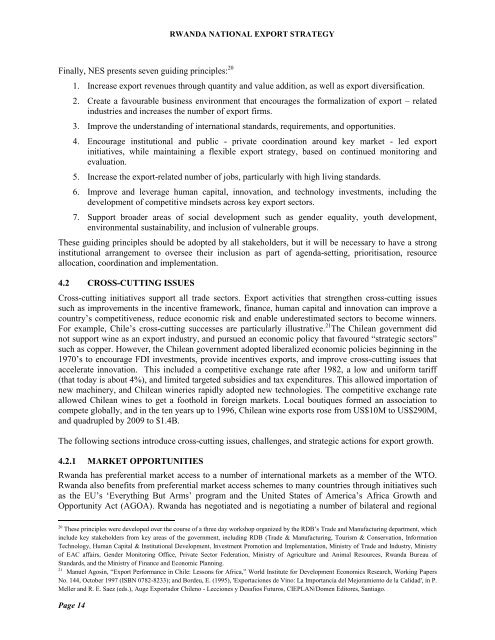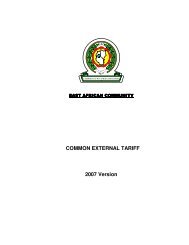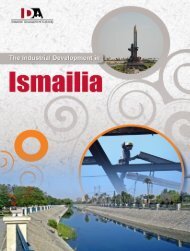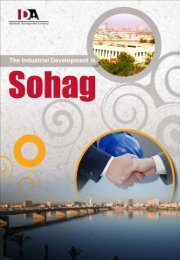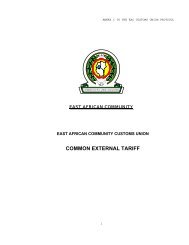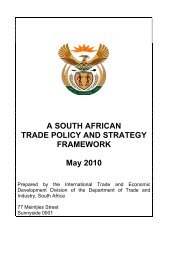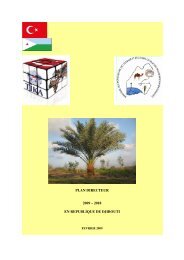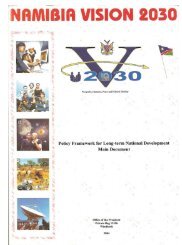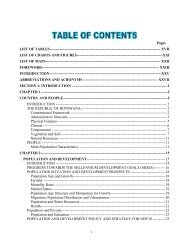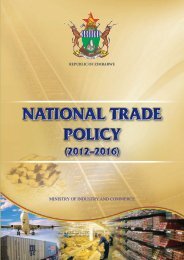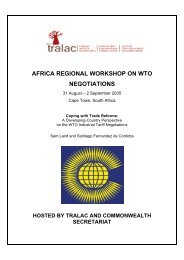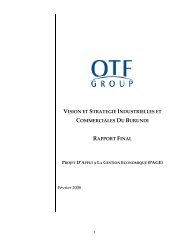rwanda national export strategy - minicom
rwanda national export strategy - minicom
rwanda national export strategy - minicom
Create successful ePaper yourself
Turn your PDF publications into a flip-book with our unique Google optimized e-Paper software.
RWANDA NATIONAL EXPORT STRATEGY<br />
Finally, NES presents seven guiding principles: 20<br />
1. Increase <strong>export</strong> revenues through quantity and value addition, as well as <strong>export</strong> diversification.<br />
2. Create a favourable business environment that encourages the formalization of <strong>export</strong> – related<br />
industries and increases the number of <strong>export</strong> firms.<br />
3. Improve the understanding of inter<strong>national</strong> standards, requirements, and opportunities.<br />
4. Encourage institutional and public - private coordination around key market - led <strong>export</strong><br />
initiatives, while maintaining a flexible <strong>export</strong> <strong>strategy</strong>, based on continued monitoring and<br />
evaluation.<br />
5. Increase the <strong>export</strong>-related number of jobs, particularly with high living standards.<br />
6. Improve and leverage human capital, innovation, and technology investments, including the<br />
development of competitive mindsets across key <strong>export</strong> sectors.<br />
7. Support broader areas of social development such as gender equality, youth development,<br />
environmental sustainability, and inclusion of vulnerable groups.<br />
These guiding principles should be adopted by all stakeholders, but it will be necessary to have a strong<br />
institutional arrangement to oversee their inclusion as part of agenda-setting, prioritisation, resource<br />
allocation, coordination and implementation.<br />
4.2 CROSS-CUTTING ISSUES<br />
Cross-cutting initiatives support all trade sectors. Export activities that strengthen cross-cutting issues<br />
such as improvements in the incentive framework, finance, human capital and innovation can improve a<br />
country‘s competitiveness, reduce economic risk and enable underestimated sectors to become winners.<br />
For example, Chile‘s cross-cutting successes are particularly illustrative. 21 The Chilean government did<br />
not support wine as an <strong>export</strong> industry, and pursued an economic policy that favoured ―strategic sectors‖<br />
such as copper. However, the Chilean government adopted liberalized economic policies beginning in the<br />
1970‘s to encourage FDI investments, provide incentives <strong>export</strong>s, and improve cross-cutting issues that<br />
accelerate innovation. This included a competitive exchange rate after 1982, a low and uniform tariff<br />
(that today is about 4%), and limited targeted subsidies and tax expenditures. This allowed importation of<br />
new machinery, and Chilean wineries rapidly adopted new technologies. The competitive exchange rate<br />
allowed Chilean wines to get a foothold in foreign markets. Local boutiques formed an association to<br />
compete globally, and in the ten years up to 1996, Chilean wine <strong>export</strong>s rose from US$10M to US$290M,<br />
and quadrupled by 2009 to $1.4B.<br />
The following sections introduce cross-cutting issues, challenges, and strategic actions for <strong>export</strong> growth.<br />
4.2.1 MARKET OPPORTUNITIES<br />
Rwanda has preferential market access to a number of inter<strong>national</strong> markets as a member of the WTO.<br />
Rwanda also benefits from preferential market access schemes to many countries through initiatives such<br />
as the EU‘s ‗Everything But Arms‘ program and the United States of America‘s Africa Growth and<br />
Opportunity Act (AGOA). Rwanda has negotiated and is negotiating a number of bilateral and regional<br />
20 These principles were developed over the course of a three day workshop organized by the RDB‘s Trade and Manufacturing department, which<br />
include key stakeholders from key areas of the government, including RDB (Trade & Manufacturing, Tourism & Conservation, Information<br />
Technology, Human Capital & Institutional Development, Investment Promotion and Implementation, Ministry of Trade and Industry, Ministry<br />
of EAC affairs, Gender Monitoring Office, Private Sector Federation, Ministry of Agriculture and Animal Resources, Rwanda Bureau of<br />
Standards, and the Ministry of Finance and Economic Planning.<br />
21<br />
Manuel Agosin, ―Export Performance in Chile: Lessons for Africa,‖ World Institute for Development Economics Research, Working Papers<br />
No. 144, October 1997 (ISBN 0782-8233); and Bordeu, E. (1995), 'Exportaciones de Vino: La Importancia del Mejoramiento de la Calidad', in P.<br />
Meller and R. E. Saez (eds.), Auge Exportador Chileno - Lecciones y Desafios Futuros, CIEPLAN/Domen Editores, Santiago.<br />
Page 14


